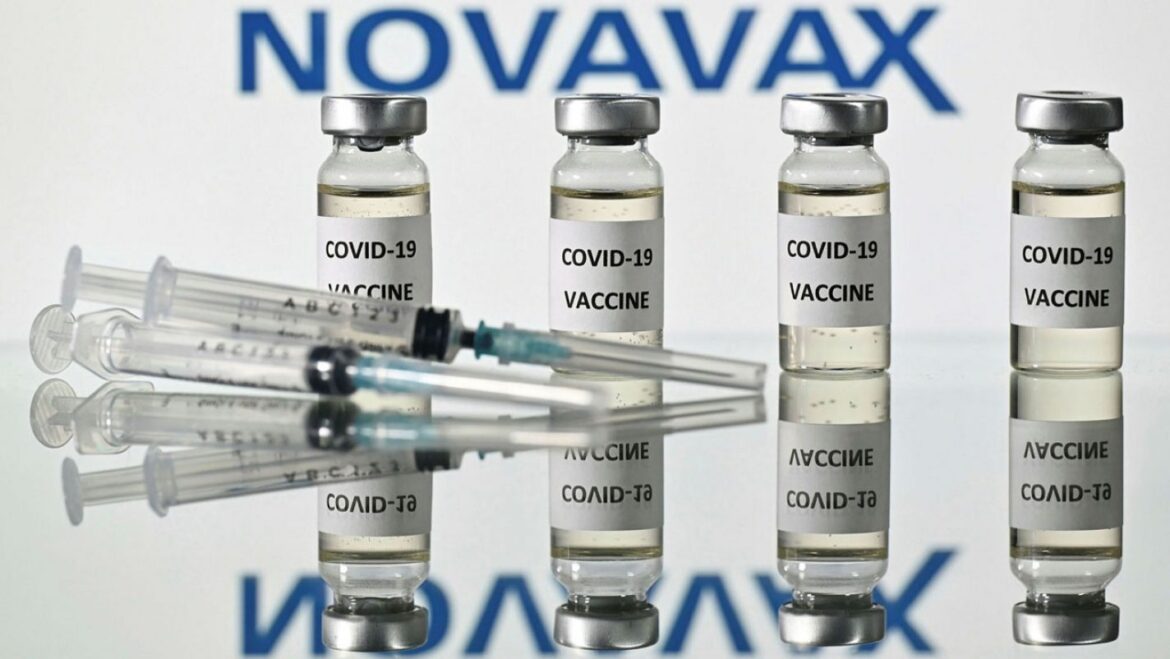By Asmau Ahmad
United States Biotechnology Company, Novavax has applied to the U.S. Food and Drug Administration (FDA) for Emergency Use Authorisation (EUA) of its protein-based COVID-19 shot as a booster for adults.
The vaccine is designed to prevent COVID-19 caused by the severe acute respiratory syndrome SARS-CoV-2 as a homologous and heterologous booster in adults aged 18 and older, the company said on Monday.
If authorised, Novavax’ vaccine would be the first protein-based COVID-19 booster for adults.
This application for EUA is supported by data from Novavax’ Phase III PREVENT-19 trial conducted in the United States and Mexico, and from the British-sponsored COV-BOOST Phase II trial.
As part of an open-label booster phase of the PREVENT-19 trial, a single booster dose of the Novavax COVID-19 Vaccine, Adjuvanted was administered to healthy adult participants at least six months after their primary two-dose vaccination series of the Novavax COVID-19 Vaccine, Adjuvanted.
The third dose produced robust antibody responses comparable to or exceeding levels associated with the efficacy data in the primary series Phase 3 clinical trials.
In the COV-BOOST trial, the Novavax COVID-19 Vaccine, Adjuvanted induced a significant antibody response when used as a heterologous third booster dose.
However, safety reporting of reactogenicity events shows an increasing incidence across all three doses of the Novavax COVID-19 Vaccine, Adjuvanted, reflecting the increased immunogenicity seen with a third dose.
Doses of the Novavax COVID-19 Vaccine, Adjuvanted have been available for use in the United States since July.
WHO turns to public for monkeypox name change
By Asmau Ahmad
The World Health Organization (WHO) has called for help from the public in coming up with a less stigmatising name for the fast-spreading Monkeypox disease.
The UN health agency has for weeks voiced concern about the name of the disease that emerged onto the global stage in May.
Experts warn the name can be stigmatising to the primates it was named after, but who play little role in its spread, and to the African continent that the animals are often associated with.
Recently in Brazil, for instance, there have been reported cases of people attacking monkeys over disease fears.
“Human monkeypox was given its name before current best practices in naming diseases,” WHO spokeswoman Fadela Chaib told reporters in Geneva.
“We want really to find a name that is not stigmatising,” she added, saying the consultation is now open to everyone through a dedicated website: https://icd.who.int/dev11.
Monkeypox received its name because the virus was originally identified in monkeys kept for research in Denmark in 1958, but the disease is found in a number of animals, and most frequently in rodents.
The disease was first discovered in humans in 1970 in the Democratic Republic of Congo, with the spread among humans since then mainly limited to certain West and Central African countries where it is endemic.
But in May, cases of the disease, which causes fever, muscular aches and large boil-like skin lesions, began spreading rapidly around the world, mainly among men who have sex with men.
Worldwide, over 31,000 cases have been confirmed since the start of the year, and 12 people have died, according to the WHO, which has designated the outbreak a global health emergency.
While the virus can jump from animals to humans, WHO experts insist the recent global spread is due to close-contact transmission between humans.
The UN health agency announced last week that a group of experts it had convened had already agreed on new names for monkeypox virus variants, or clades.
Until now, the two main variants have been named after the geographic regions where they were known to circulate, the Congo Basin and West Africa.
The experts agreed to rename them using Roman numerals instead, calling them Clade I and Clade II.
A subvariant of Clade II, now known as Clade IIb, is seen as the main culprit behind the ongoing global outbreak.




